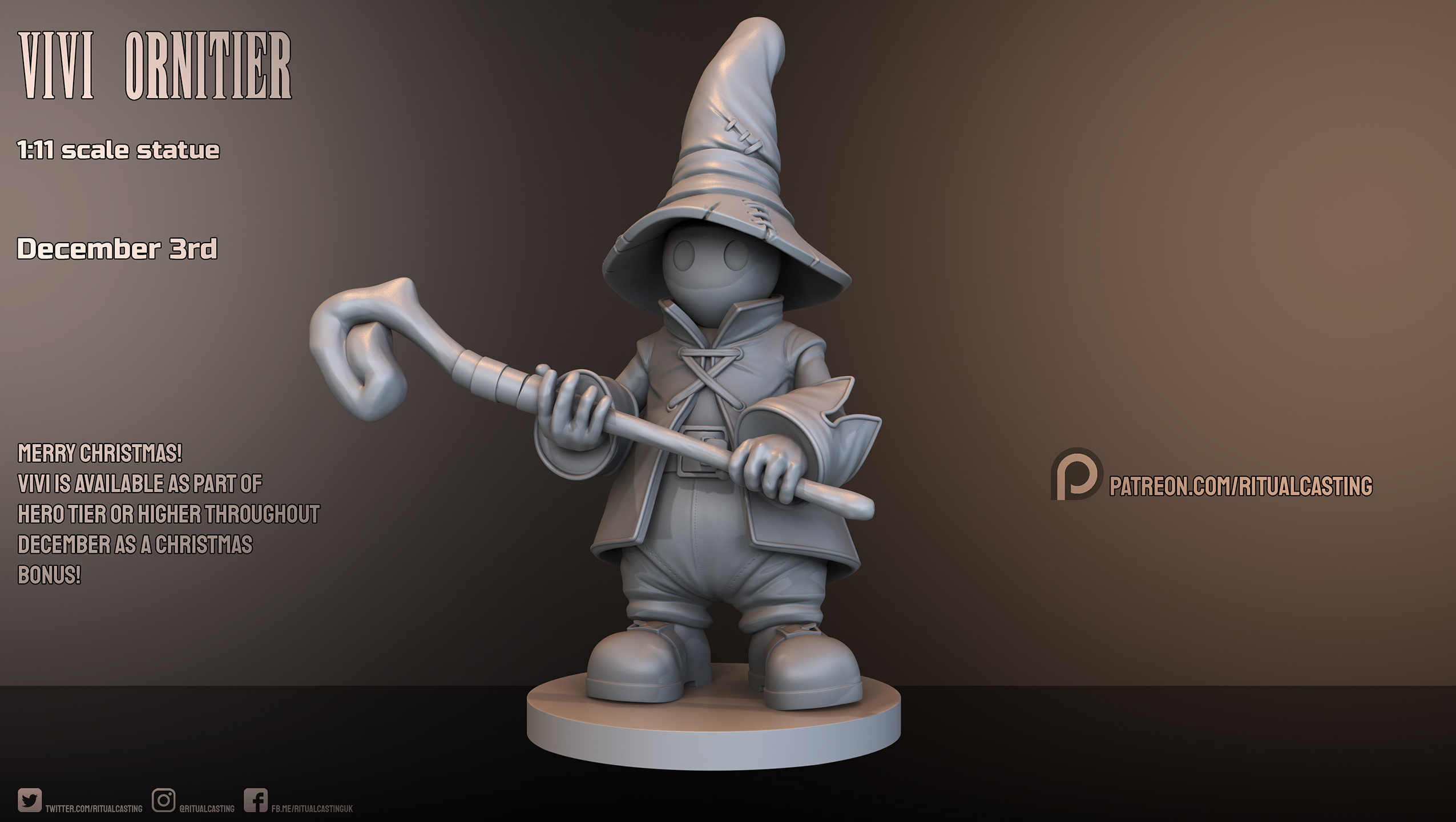Ritual casting 5e is a fascinating aspect of Dungeons & Dragons (D&D) 5th Edition that adds depth and strategic gameplay to the tabletop experience. As players delve deeper into the world of D&D, understanding the mechanics of ritual casting becomes essential. This feature allows characters to perform magical spells without expending spell slots, making it a valuable tool for any adventurer. Whether you're a seasoned dungeon master or a new player eager to learn the ropes, this guide will provide everything you need to know about ritual casting in 5e.
From the basics of how ritual casting works to advanced strategies and tips for optimizing its use, this article covers it all. Ritual casting isn't just about saving spell slots; it's about enhancing your character's versatility and creating more immersive storytelling opportunities. By mastering this mechanic, players can unlock new possibilities in their campaigns and bring their characters to life in exciting ways.
This comprehensive guide is designed to help you understand the nuances of ritual casting, explore its applications, and discover the spells that can be cast as rituals. Whether you're looking to enhance your wizard's spellbook or give your cleric more options, this article will provide the insights you need to succeed. Let's dive in!
Read also:Henry Ford Pain Clinic Your Premier Destination For Comprehensive Pain Management
Table of Contents
- What is Ritual Casting 5e?
- How Does Ritual Casting Work?
- Spells That Can Be Cast as Rituals
- Benefits of Ritual Casting
- Limitations of Ritual Casting
- Classes That Can Perform Rituals
- Optimizing Ritual Casting
- Ritual Casting Strategies
- Common Mistakes to Avoid
- Conclusion
What is Ritual Casting 5e?
Ritual casting 5e refers to the ability of certain characters in Dungeons & Dragons 5th Edition to cast specific spells as rituals. Unlike regular spellcasting, which requires the expenditure of spell slots, ritual casting allows players to perform these spells without using up any resources. This mechanic is particularly useful for spells that are not combat-oriented, such as divination or utility spells, which are often cast outside of combat scenarios.
One of the key features of ritual casting is that it requires more time to perform. Instead of the usual action or bonus action required for casting spells, rituals typically take 10 minutes to complete. This time constraint makes ritual casting more suitable for situations where time is not a critical factor, such as during downtime or exploration phases.
Why is Ritual Casting Important?
Ritual casting adds a layer of strategic depth to the game by allowing players to conserve their spell slots for more critical moments. It also encourages players to think creatively about how they use their spells, as they can now perform certain magical effects without depleting their resources. This mechanic is particularly valuable for classes that rely heavily on spell slots, such as wizards and clerics, as it provides them with additional flexibility and versatility.
How Does Ritual Casting Work?
Ritual casting in 5e follows a specific set of rules that players need to understand to use it effectively. First and foremost, only certain spells can be cast as rituals, and these spells must explicitly state in their descriptions that they can be performed as such. Additionally, the caster must have the Ritual Caster feat or belong to a class that grants the ability to perform rituals.
When casting a spell as a ritual, the caster must spend the required time (usually 10 minutes) and follow the spell's components, including verbal, somatic, and material components. Material components with a specified cost cannot be substituted with a component pouch, meaning the caster must have the necessary materials on hand to perform the ritual.
Key Points to Remember
- Only spells with the "ritual" tag can be cast as rituals.
- Ritual casting requires 10 minutes to complete.
- Material components with a cost must be provided explicitly.
- Ritual casting does not consume spell slots.
Spells That Can Be Cast as Rituals
There are numerous spells in D&D 5e that can be cast as rituals, covering a wide range of effects and applications. These spells are typically utility-focused, designed to enhance exploration, investigation, and problem-solving rather than direct combat. Below are some examples of popular ritual spells:
Read also:Affordable Housing In Queens A Comprehensive Guide To Accessible Living
Common Ritual Spells
- Identify: Allows the caster to learn the properties of a magic item.
- Comprehend Languages: Grants the ability to understand spoken and written languages.
- Locate Object: Helps find a specific object within a certain range.
- Water Breathing: Enables creatures to breathe underwater.
- Leomund's Tiny Hut: Creates a protective shelter that blocks most forms of intrusion.
Benefits of Ritual Casting
Ritual casting offers several advantages that make it a valuable mechanic in D&D 5e. One of the most significant benefits is the conservation of spell slots, allowing players to save their resources for more critical moments. Additionally, ritual casting encourages creative problem-solving and strategic planning, as players must consider the time and materials required to perform rituals.
Another advantage of ritual casting is its ability to enhance role-playing opportunities. By incorporating rituals into the game, players can create more immersive and engaging storylines, adding depth to their characters and the world around them. This mechanic also promotes teamwork, as players can collaborate to gather the necessary materials and resources for complex rituals.
Limitations of Ritual Casting
Despite its many benefits, ritual casting does have some limitations that players need to be aware of. The most obvious limitation is the time required to perform rituals, which can be a disadvantage in fast-paced or time-sensitive situations. Additionally, the need for specific material components with a cost can make certain rituals more challenging to perform, especially for characters with limited resources.
Another limitation is that not all spells can be cast as rituals, meaning players must carefully choose which spells to include in their spellbooks or prepare in advance. This limitation can be particularly challenging for classes with limited spell slots, as they must balance their resources between combat and non-combat spells.
Classes That Can Perform Rituals
Several classes in D&D 5e have the ability to perform rituals, each with its own unique approach and mechanics. These classes include:
1. Wizard
Wizards are perhaps the most versatile ritual casters, as they have access to a wide range of spells and can prepare rituals from their spellbooks. This makes them ideal for characters who want to maximize their ritual casting potential.
2. Cleric
Clerics can also perform rituals, drawing on their divine magic to cast spells that aid their party in various situations. Their ability to prepare spells each day allows them to adapt to different scenarios and perform rituals as needed.
3. Druid
Druids have access to a variety of nature-themed rituals, making them valuable allies in exploration and survival scenarios. Their connection to the natural world enhances their ritual casting abilities, providing unique options for their party.
Optimizing Ritual Casting
To make the most of ritual casting in D&D 5e, players should consider several strategies and tips. First, it's essential to choose spells that are well-suited for ritual casting, focusing on utility and exploration spells that provide long-term benefits. Additionally, players should invest in the necessary materials and resources to ensure they can perform rituals when needed.
Another optimization strategy is to work with other party members to create synergies and enhance the effectiveness of rituals. For example, a wizard can prepare a ritual while the rest of the party handles combat or exploration tasks, maximizing the group's overall efficiency.
Ritual Casting Strategies
Effective ritual casting requires careful planning and execution. Below are some strategies to help players get the most out of this mechanic:
- Choose spells that align with your character's role and the campaign's themes.
- Coordinate with other party members to create complementary strategies.
- Invest in the necessary materials and resources to perform rituals efficiently.
- Experiment with different combinations of spells to discover new possibilities.
Common Mistakes to Avoid
While ritual casting is a powerful mechanic, players should be aware of common mistakes that can hinder their effectiveness. One of the most frequent errors is failing to plan ahead, leading to missed opportunities to perform rituals at critical moments. Another mistake is neglecting the importance of material components, which can prevent players from casting certain spells when needed.
Additionally, players should avoid over-relying on ritual casting, as it can slow down gameplay and detract from the excitement of combat encounters. By balancing ritual casting with other gameplay elements, players can create a more dynamic and engaging experience for everyone involved.
Conclusion
Ritual casting 5e is a vital mechanic in Dungeons & Dragons that adds depth and versatility to the game. By understanding how it works, exploring the available spells, and optimizing its use, players can enhance their characters' capabilities and create more immersive storytelling opportunities. Whether you're a wizard, cleric, or druid, mastering ritual casting will provide you with valuable tools to succeed in your campaigns.
We encourage you to share your thoughts and experiences with ritual casting in the comments below. Have you discovered any unique strategies or combinations that work particularly well? Let us know, and don't forget to explore our other articles for more D&D tips and insights!



